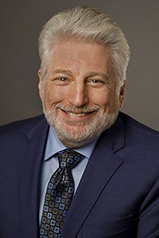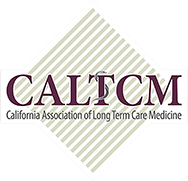I Want to Live to 99 and One Day, But Not So Fast
I Want to Live to 99 and One Day, But Not So Fast
By Noachim (Noah) Marco, MD, CMD - Chief Medical Officer - Los Angeles Jewish Health
Originally published here by the California Association of Long Term Care Medicine (CALTCM).
I have been a primary care doctor for over 36 years. Over that time, many of my older patients told me a goal of theirs was to get to age 100. It is a landmark birthday, that in 2024 only 0.03% of the US population achieved. The Today show on NBC, continues to honor centenarians by showing their images and briefly describing what they enjoy doing.
Therefore, it was surprising to me when a few years ago one of my nursing home residents told me that she wanted me to get her to 99 and one day. I asked Evelyn why her goal was 99 and one day, rather than age 100. Evelyn who was 96 at the time, said that when she hits 99 and one day that she will be able to tell everyone that she is in her 100th year. I responded to her like I had to my other patients that expressed a goal for longevity. I told her that I would do everything medically appropriate to help her reach her goal.
Once again, Evelyn responded atypically. She said, “Not so fast, Dr. Marco. I know you are busy, but I’m not done. I have to tell you it’s not just hitting 99 and one day, but how.”
She then went on to remind me how she loved to walk. She said that when the weather is bad, and she could not walk around “The Home”, (Grancell Village of Los Angeles Jewish Health) she would walk the hallways of her floor. She told me, “The nurses have even put a chair at the end of each hallway so when I get tired I can sit and rest.” I hoped that I masked my reaction thinking about the possible citation the fire marshal would give us if that was discovered.
She went on to describe how she noticed that there are a lot of people in wheelchairs in her building, and divided them into two groups. One group could “self-propel” (her phrase) and go where they want, when they want. The other group are taken out of their beds in the morning, and placed in a wheelchair. Then they are rolled into the common areas. Later, returned to their bed when the nurses decided to do so.
I immediately understood what made Evelyn’s two groups of non-ambulatory residents different. The second group predominately had advanced dementia.
Evelyn then said, “Dr. Marco, I want to get to 99 and one day, but not if I am like the people who can’t self-propel their wheelchair.” She asked that I do what I could to keep her walking, but life would be acceptable to her if she had to be in a wheelchair. As long as she could go where she wanted, when she wanted.
Those few sentences spoken by Evelyn were not stimulated by any question that I asked, and they were much more powerful than the typical answers I got by the questions I asked to understand my patients’ goals of care.
I reviewed with Evelyn, and her family that based on what she told me, our team would send her to the hospital if we could not control an acute exacerbation of her chronic conditions, or if she developed a serious acute issue, such an infection. Later, when the nurses called me telling me Evelyn wanted a sleeping pill, I told them (and later told Evelyn) that prescribing it was not consistent with her wishes. It could increase her risk of falling, which might cause her to end up in a wheelchair or even worse have a severe brain injury.
I walked into Evelyn’s room on her 99th and one-day birthday and wished her a happy one hundredth year. I asked her “Evelyn are we done?” As expected, she told me her new goal (with the same conditions) was to get to age 100. A similar question and answer occurred on her 100th birthday. On her 101st birthday, the response was quite different.
Evelyn shook her head no when I asked if the plan we had followed should stay the same. At that point, she was mostly in bed, on continuous supplemental oxygen, and could not speak more than a few words at a time. She then made a horizontal back and forth motion with her hand across her neck. Signifying she was done. I asked a few more clarifying questions, and looked up at her daughter, who gave me a confirming response. I then put in the order for Hospice, and discontinued all medications not devoted to her comfort.
Three months later, I got a call from her nurse saying that Evelyn was transitioning. I quickly walked the few hundred feet from my office to her room. I had the all too rare fortune of watching my patient take her last few breaths, in comfort and peace, and in the place she called home. Her family and the staff who loved her, shared her last moments and honored her remarkable life.
I tell Evelyn’s story at least every other week when I mentor the Internal Medicine Residents, and Geriatric Fellows that rotate to my facility. I explain how unfortunately rare it is for patients, their families and clinicians to have such clear and stress-free, end of life decision making. I stress that our standard questions don’t get us the richness of information that we need to replicate Evelyn’s story. I suggest to them that establishing that longevity is a goal is not enough. A question such as “Is there any situation where you would not want to live longer?” should be asked and the responses explored. I hope that our sessions inspire them, and that when they are having end of life conversations that they, and you, remember Evelyn’s words, “Not so fast”.
Noachim (Noah) Marco, MD, CMD
Chief Medical Officer
Los Angeles Jewish Health

